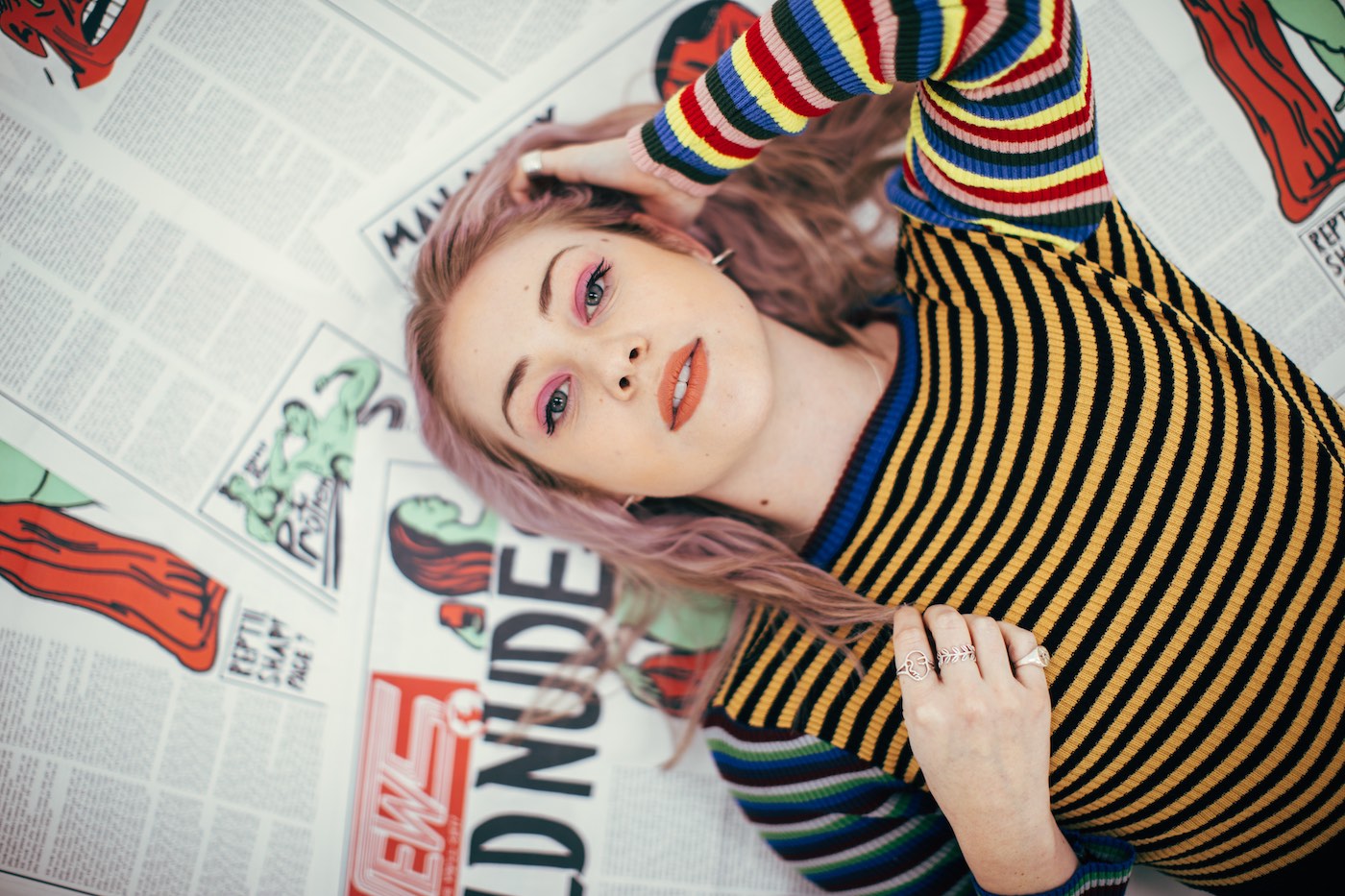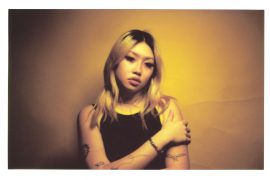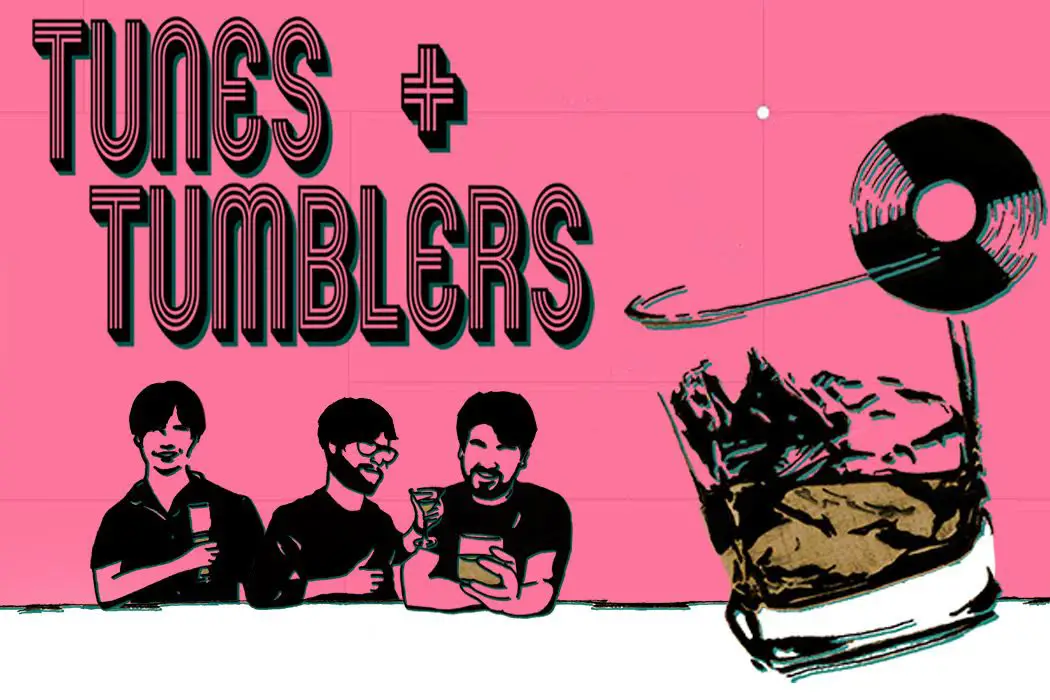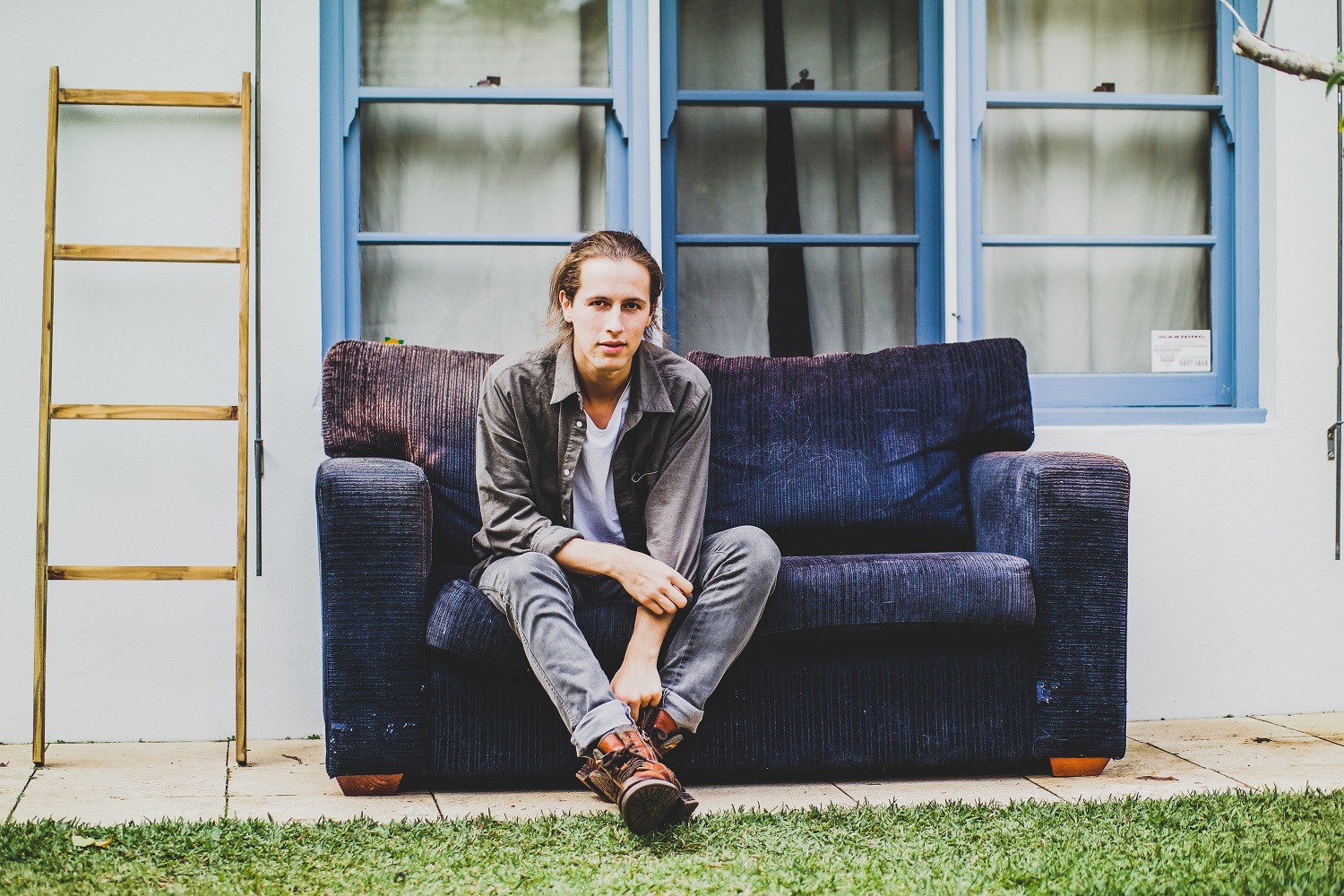Anjimile’s Jimi Chithambo breaks down their new EP, the film scores that inspire him, and the intersections of their identity, spirituality, and music
•• •• •• ••
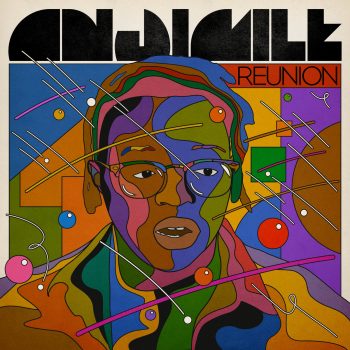
Jimi Chithambo’s rise to indie-darling-to-watch status has been as surreal as the circumstances of the past year-plus. Known in the music world as Anjimile, their knack for crafting lushly pensive songs officially became their career after they released their acclaimed debut Giver Taker in late 2020. Earlier this year, he shared his orchestral EP Reunion, consisting of reimagined versions of several Giver Taker tracks with vocal support from fellow queer, indie powerhouses Jay Som, Lomelda, and Sasami. As the eloquently personal realm of Anjimile continues to evolve, Chithambo’s musical self-discovery only deepens their connection to their truest self.
Ahead of his Treefort performance, Atwood Magazine caught up on how much his life has changed over the past year-plus.
— —
Listen: ‘Reunion’ – Anjimile
A CONVERSATION WITH ANJIMILE (JIMI CHITHAMBO)
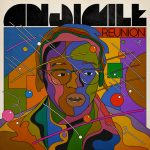
Atwood Magazine: Your music never really sounds the same twice; there's so much texture and range. Where do you think that that urge for exploration comes from?
Jimi Chithambo: Well, thank you! For Giver Taker, I got to work with two very, very sick producers who are also good buddies of mine, Gabe Goodman and Justine Bowe. We all like experimental shit and we also like pop songwriting. I love Radiohead and I also love the Beatles. We also dig music from a variety of genres. I, like, stan Lauryn Hill to my death. I think that our divergent influences all share the commonality of just being super dope music, point-blank. And I think because of that, we were like, ‘Yeah, let’s layer this up,’ add some delicious musical texture and just really make this album as musical as possible.
What do you think spurs you on as a musician and a songwriter?
JC: I live for the strange. Seeing Animal Collective the other night reminded me how much I love music and how much I love weird shit. I just really like the prospect of creating things that have never been made. That’s what I’m interested in doing as a songwriter. I’m easily bored, as a musician, so if I’m writing something and it feels not super interesting to me, I’ll just put it down and be like, ‘Well, this song is boring. Maybe I’ll take a break. Maybe I’ll try doing something else. What if I played this on the bass? Or what if there was just no chorus here?’ Or like, whatever. I like experimenting and I want to keep doing that forever.
It sounds like a really instinctual process.
JC: Yeah. It’s like a tasty meal. Like, my partner recently made me a charcuterie board (‘cause she’s a real one) and she put cilantro on blueberries. I was like, ‘What are you talking about now!? That’s wild.’ I would never think to put that together. It’s delicious and it’s very refreshing. If I can do that with my music—put some things together that you might not instinctually think would fit together, but when you put it together, it’s actually really delicious—that’s like, my professional goal, as an artist.

What do you think or hope that your music reveals of your inner world and yourself to both you and to others?''
JC: Generally speaking, I write as a way to process my emotions. So if my work can help me work through some shit, that’s another creative goal that I have. For me, part of working through shit is being as vulnerable and honest as possible, so that tends to come out in my songwriting. I’m a relatively private person, so the first time I heard Giver Taker I was like, ‘Damn, this is kind of revealing.’ I didn’t really realize that or think about it because it’s just the way that I write, and that’s the way that I need to write to get the most out of making music. I hope people can relate in some way. I mostly write if I have too many feelings and the fact that that sometimes resonates with other people, is just a times-1000 added bonus. I never really know how people are going to react to my tunes.
Well, some of us cry.
JC: (Laughs) You know, a lot of my tunes, I cried while writing them, so that’s cool.
How has making music helped you to be more vulnerable?
JC: Birds just sing, that’s just what they do. This is kind of just what I do. My songwriting process is always incredibly involuntary. Even though it’s super revealing and shit, it feels very matter-of-fact to me. I got mad feelings. It’s kind of wild that this is my job.
What has your experience been in the music scene in terms of having a community? Do you feel like you’ve found one?
JC: It’s hard to say, just because of the remoteness of my introduction to the world of indie. Before I moved to Durham, I lived in Boston, and there’s definitely a thriving music community there. I haven’t really been out much [in Durham] on account of [the delta variant]. When I do go out, there’s queers everywhere, which is amazing. In terms of the world of indie on a national stage, I’ve been able to connect with a handful of Black artists, which is amazing. I’m just kind of dipping my toe in the water and seeing if there’s any communities that I can join, folks who I can talk to and connect with. I’ll have to keep you posted.

Can you name a couple Black artists you’ve been enjoying and or connecting with?
JC: The first person to comes to mind is Shamir. Every Black artist who’s ever been on Father Daughter is somebody who I have creeped on. (Laughs) That includes Vagabon and Christelle Bofale. Also, Boston has a handful of really, really dope Black indie artists. In the hip hop scene specifically, Billy Dean Thomas is a very, very cool alternative artist.
Let's talk about your EP Reunion. What drove your choices to reimagine those three particular songs from Giver Taker?
JC: The concept itself was Tyler and Jesse over at Father Daughter’s idea. They were like, ‘Hey, we think it would be cool to do a reimagining of a couple of tunes from Giver Taker as an EP,’ and I was like, ‘That’s a great idea.’ Then we started reaching out to arrangers and people who could potentially bring this vision to life. Choosing those three songs, for whatever reason, was very easy to do. It was something that we all agreed on immediately. “1978” has a bit of orchestra in the original recording, so that felt like a no-brainer.
It’s so cinematic. Have you ever been interested in scoring films?
JC: Yes, I would really love to do that! Jonny Greenwood-style, or like Animal Collective-style. I think that that would be super fun. I love working within various, specific creative restrictions. So yeah, that’s my dream. Scoring films would be sick as fuck.
Are there any particular scores that you think influence your music at all?
JC: The one that comes to mind is 2001: A Space Odyssey. A score like that is pretty classic, but just how huge the sound becomes, it’s very epic. I write everything acoustic, and I like the prospect of, when appropriate, taking that sound and making it as huge as it can possibly be, creating that epic dynamic contrast. On the opposite side of the spectrum, I’d be remiss if I didn’t mention The Lion King. The bassline to “I Just Can’t Wait To Be King” is something that I think about very often. As a lover of pop music, I love catchy, and I feel like The Lion King accomplished pop songwriting in this very specific, Disney context. I think that overall for Reunion though, I couldn’t originally imagine the whole vision until I heard Lomelda’s vocals. I think we all agreed that the mood was going to be somewhat somber and emotional, ‘cause that’s my shit. I just can’t believe that the guest vocalists agreed to do it. It made me feel really emotional hearing these folks’ interpretations of the songs.
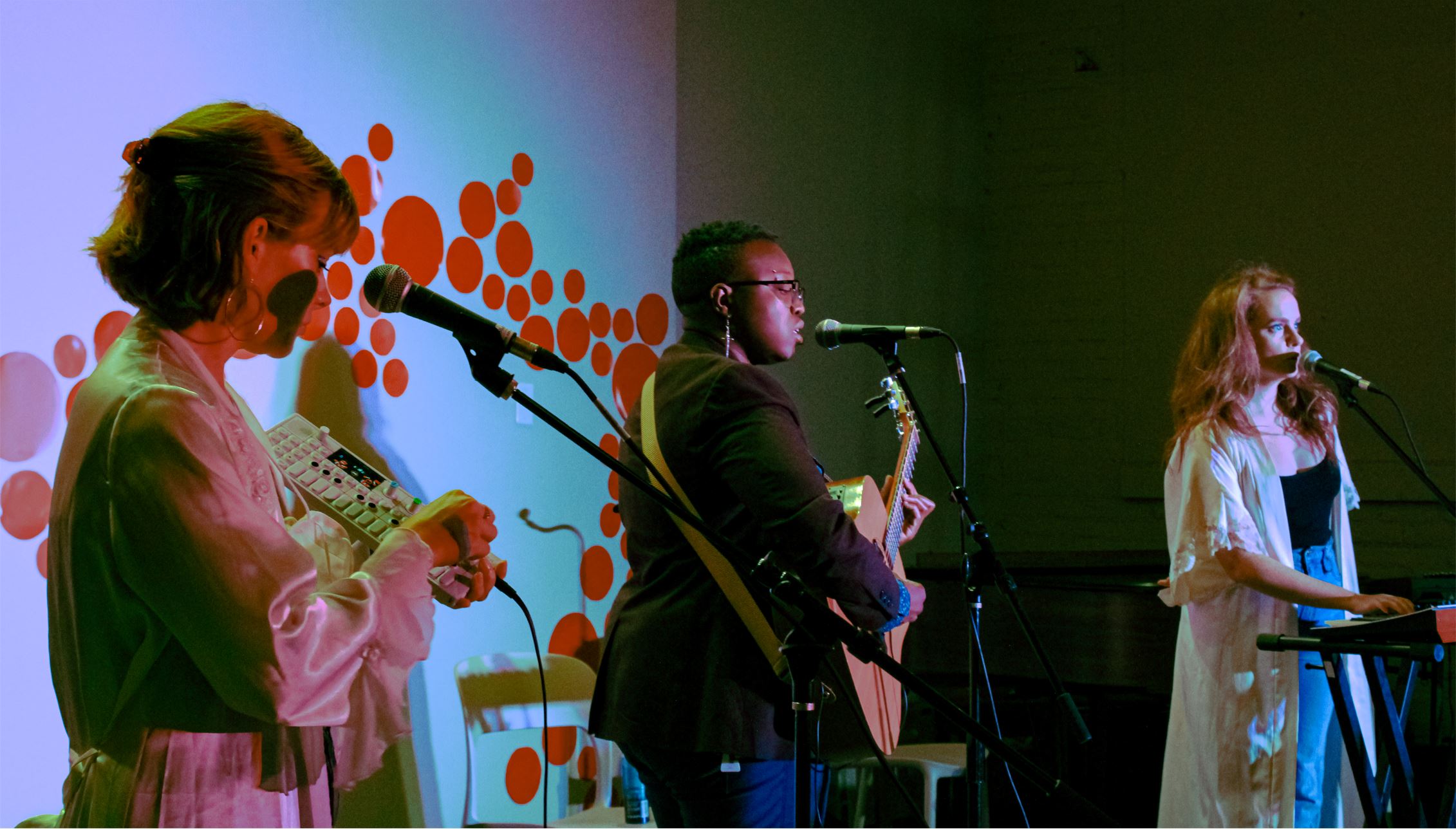
Are Lomelda, Jay Som, and Sasami friends of yours?
JC: No, I don’t know those MFers! Hannah [Read] is buddies with Tyler over at Father Daughter. He shared Giver Taker with her and she was a fan and I was like, ‘That’s insane,’ because I really think that Lomelda’s record from last year [Hannah] is the best album of the last five years, at least. I love it so fucking much that I’ve been having a hard time writing since I heard it. I’m like, ‘Well, what the fuck am I supposed to do?’ Yeah, it’s really amazing. So [Lomelda] was down, and then I’m buddies with Ellen [Kempner] of Palehound, so I think she put in a good word and Melina [Duterte] was down and that was super cool. And then I don’t remember how we got Sasami. We’re friends on Facebook. Now we’re acquaintances, which is very humbling because I’m a fucking fan, and I really can’t believe that they all agreed to participate. It’s always sick to work with artists you admire. And they lit it up, each of them just fucking lit up their tracks.
What did their contributions reveal to you about these songs that you hadn't really experienced yet?
JC: I’ll give a little tune-by-tune synopsis. I think with “1978,” Hannah really got to the heart of the tune. That’s a song that I cried while writing. Her interpretation strikes me as very stark and vulnerable and open, and her vocal performance is amazing to me for that reason. So hearing her sing on that, And I was like, ‘oh my God. This is very special.’ It was just amazing to hear her. It just had a lot of heart, I guess, is what I’ll say. And maybe I didn’t realize that that song has so much heart, but it made my heart feel full to hear her sing it. And then with Melina and “In Your Eyes”—wow. I was completely blown away by the emotionality of the performance. Me and my bandmate Justine rerecorded vocal harmonies for these tunes and it was so hard to do because everybody’s takes were so good that I was like, ‘Damn, now I have to sing behind this? That’s nuts!’ But yeah, Melina’s emotionality in that tune, I thought it was beautiful. And once again, very stark and something about the vocal performance. I can’t think of the right word, but it was very matter-of-fact, very declarative in a way I never realized. And Sasami’s take on “Maker” made me realize how intrinsically psychedelic that song is, in terms of the cyclical fingerpicking patterns. I was pumped—all of the vocal layers and effects, I never would have done that and I didn’t know what to expect. So hearing it was a true treat. It all blew me away.
What do you appreciate the most about collaborating with other queer folks?
JC: I think it’s always a blessing to share an affinity like queerness with another person, especially just because it’s hard out here for a queer. It’s hard out here for trans people. It’s wonderful to get to share both the affinity of queerness and also the joy of making art together. I love the element of surprise. I love getting to see other people do their thing, and contributing to that in whatever way I can. It’s like in Captain Planet when all the Planeteers–I don’t know if you’ve seen it. So Captain Planet is a TV show from the mid or early nineties. I would highly recommend looking it up and maybe just checking out the theme song, but Captain Planet is this blue guy who has huge muscles and his thing is he protects the planet. This guy is an environmentalist, and he has five multiracial kids who are a part of his group, and they’re called the Planeteers and they wear rings and hang out together. And when they put the rings together, Captain Planet appears and he saves the day. And so working with queers, I feel like it’s kind of like that. With our powers combined, we join forces and create something greater than the sum of us as individuals.
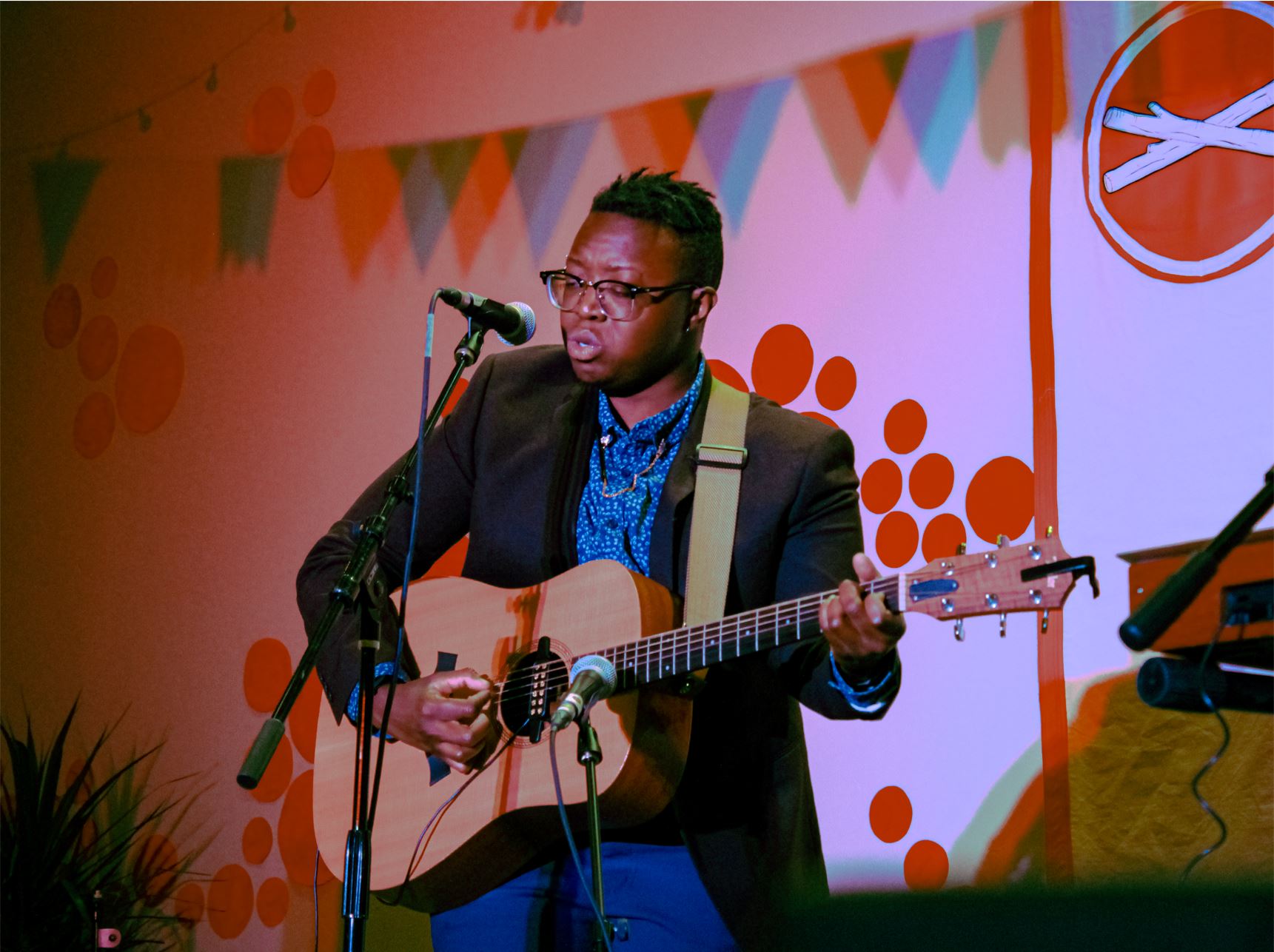
I feel like sometimes as a queer person, it's kind of a struggle to find something that makes us feel grounded. Something you can be tethered to that's bigger or deeper than us on an individual basis, kind of like the way family and religion do that for a lot of people. What are some things that give you that sense of connectedness?
JC: Thinking about my ancestry makes me feel a sense of pride and belonging. My parents are transphobic, but I think perhaps my sense of spirituality protected me from that. It has kind of always protected me from that religiosity because at its base, I relate my spirituality to my most honest feelings. But my sibling is queer, and I never knew my grandparents, so generationally, no idea what’s going on there. But I know that the lineage of my family goes back a long time. There had to be some queers up in there! So it heartens me to know that even though I have this really corrosive ignorance and fear when it comes to queerness and my immediate parentage, the queerness goes back further. It has deeper roots than the transphobia that I experience today, and that makes me feel really loved.
How else do your queerness and transness intersect with your spirituality, and how have you reclaimed your spirituality as an adult?
JC: My main source of spirituality throughout my life has always been music, ‘cause it just makes me feel connected to the universe or something. The older I’ve gotten, I’ve found that writing music actually helps me express myself as honestly and authentically as possible—singing where words might fail, or playing a chord progression where words might fail, to communicate the essence of me. I’ve known I was queer from a pretty young age and was ashamed of that for a couple of years as a teen, and then, I’m not really sure how, but I became proud. Maybe it was like, watching The L Word on HBO. I’m not sure because I didn’t really have any role models. But I reached a point where I was like, ‘I’m queer, and that’s alright.’ I have plenty of issues in my life, and my queerness is not one of them. And then I got a bit older and I began to realize that I might be nonbinary and trans, and writing that out through music helped me understand my identity. Writing “Maker” helped me understand my trans identity, and writing in general always makes me feel linked to whatever spiritual forces are out there. And so in that way, my queerness and musicality and spirituality become forever linked. Any expression of one has to invoke the other, just because these are all really inseparable and unremovable parts of who I am. These three pieces of me have been dancing and intertwining since the day that I was born. The only difference now is that other people know about it, ‘cause it’s in my songs and people listen to my music sometimes, I’ve heard.
— —

Connect to Anjimile on
Facebook, Instagram, Twitter
Discover new music on Atwood Magazine
? © Sophie Prettyman-Beauchamp


